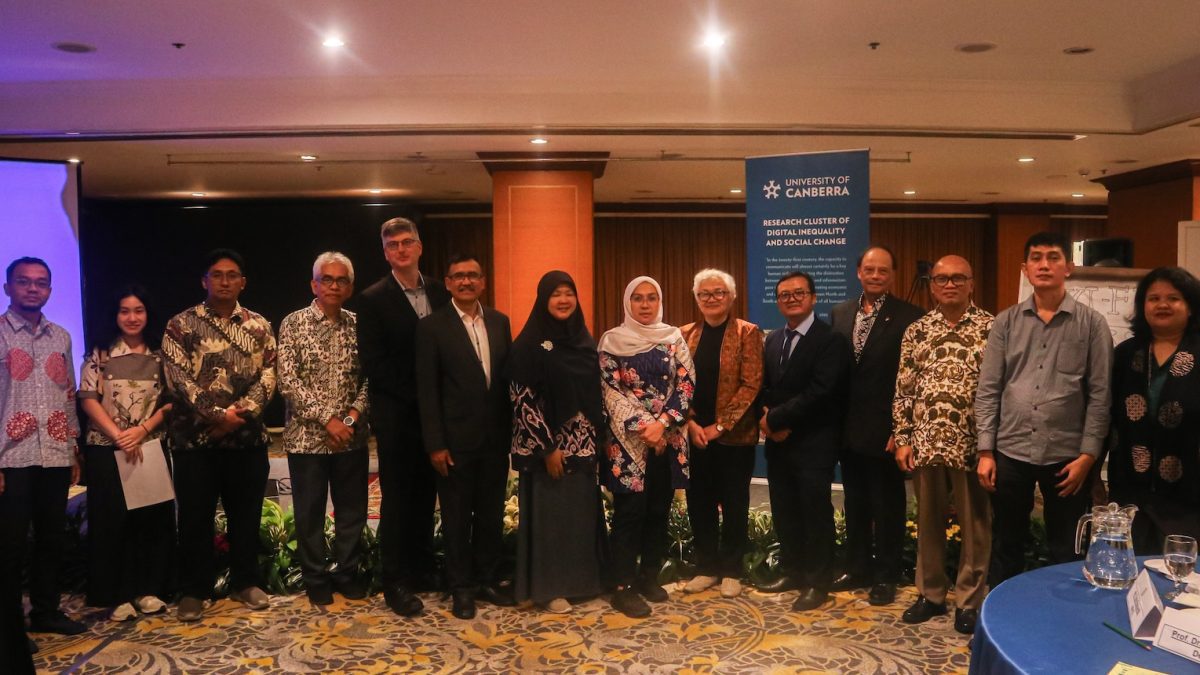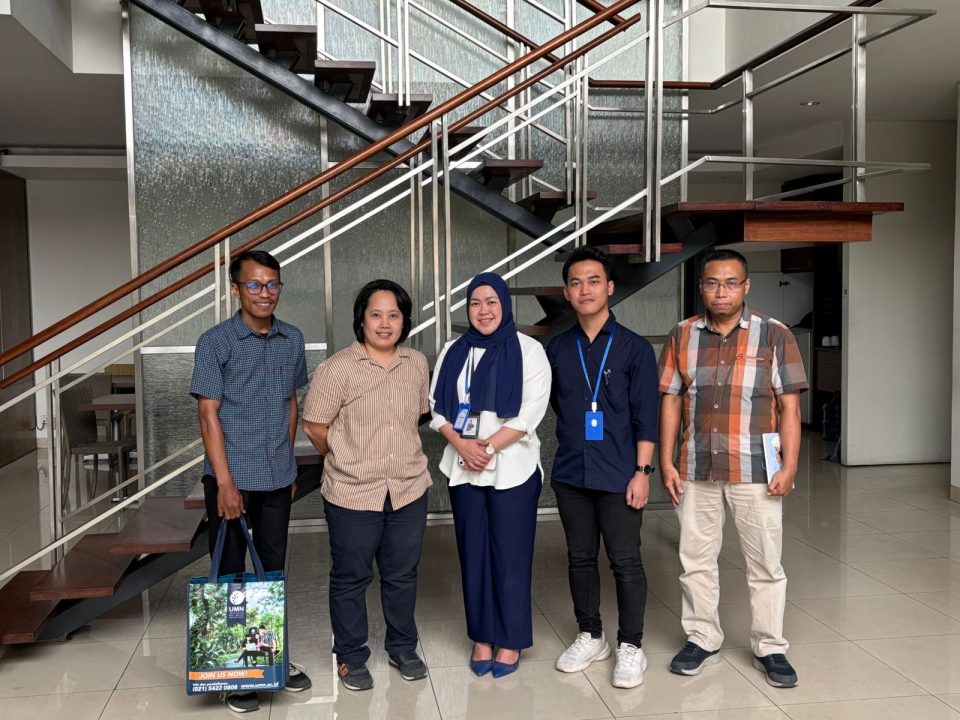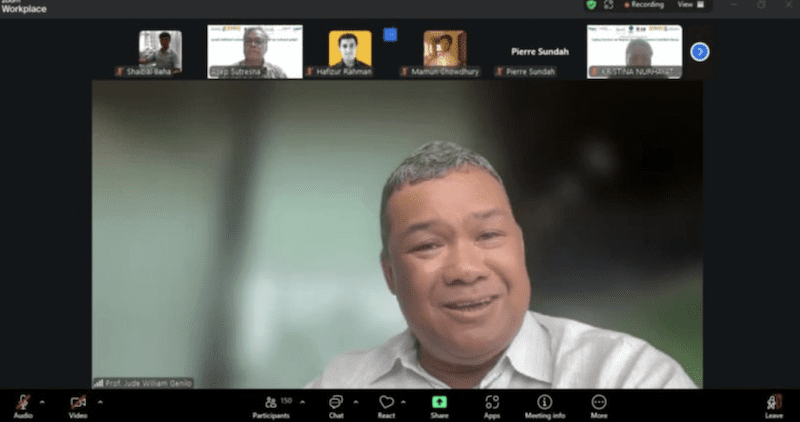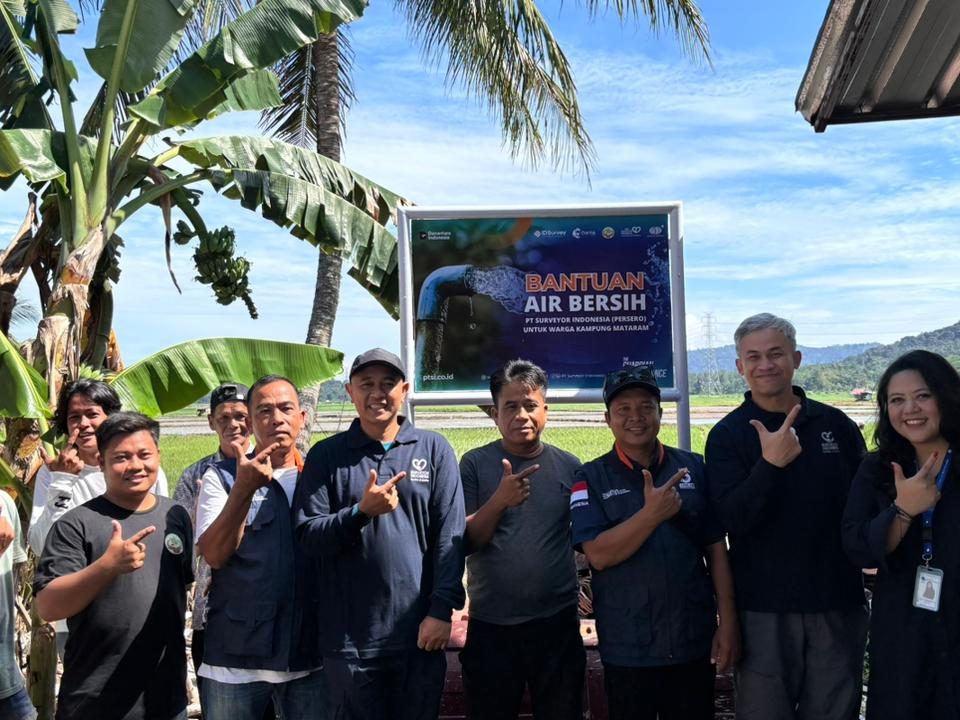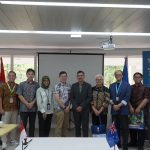
UMN Officially Conducts Research Collaboration with The University of Canberra and NEVCE
August 12, 2025
UMN Computer Engineering Lecturer Secures International Grant from IEEE
August 13, 2025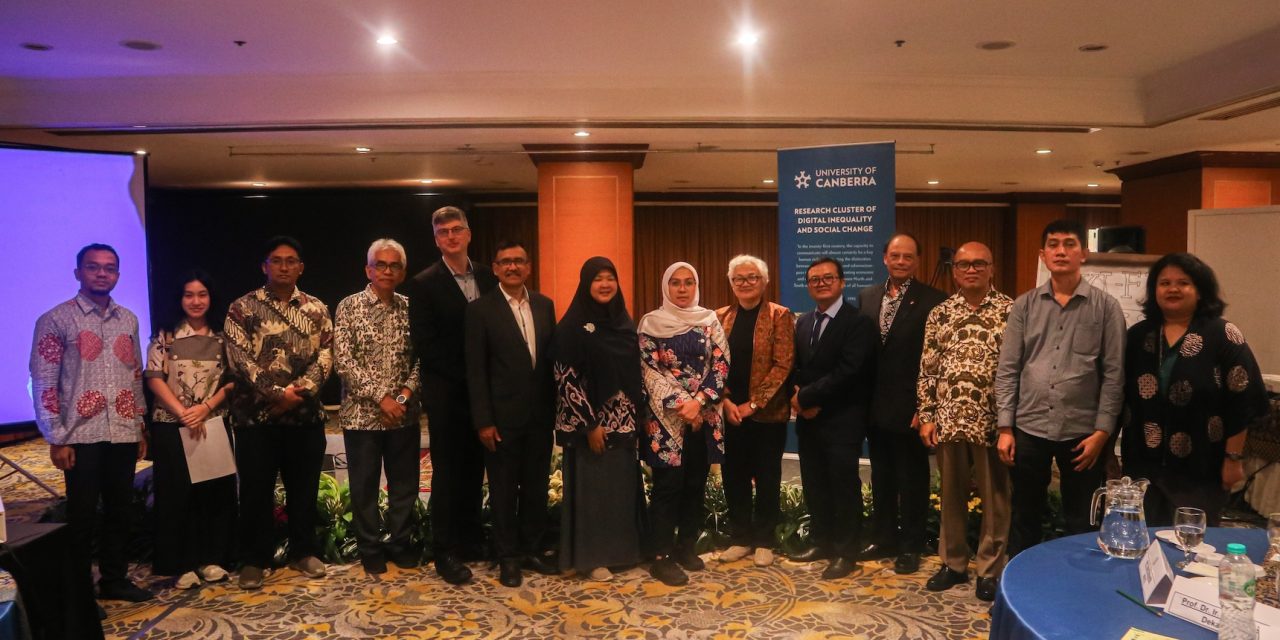
Group photo at the DIBI workshop. (Doc. UMN)
Tangerang – On Tuesday (05/08/2025), a lecturer from Universitas Multimedia Nusantara (UMN) participated in a workshop on Decarbonisation Pathways for Indonesian Bus Infrastructure. This collaboration was organized by the Australia-Indonesia Knowledge Partnership Platform (KONEKSI) in partnership with the Australian Embassy, universities, government agencies, and other industries. The event was held both online and in person in Surakarta, Indonesia.
The workshop focused on the theme “Bridging the Gaps Toward Electric Buses & Sustainable Energy Use in Indonesia.” It discussed technology and sustainable development and provided inclusive and equitable solutions and findings from existing research.
“It’s great that this event went smoothly. Through this event, we can gain much knowledge from various perspectives and studies because this project is multidimensional. With this event, we can also see how the project is progressing and whether it is running smoothly,” Associate Professor Ahmed Imran, the Principal Investigator of the DIBI Project at the University of Canberra, said
Ahmed hopes this activity will give participants new insights and benefits for all parties. He views this activity not only from a technical perspective but also as a combination of socio-cultural aspects. Additionally, Ahmed hopes that this activity can open avenues or opportunities for collaboration across various fields of knowledge, which can be inclusive and diverse.
“I am pleased that this collaboration is proceeding smoothly. In Australia, we have already widely adopted Electric Vehicles (EVs) for public transportation. Together with KONEKSI, we aim to implement this project in Indonesia in collaboration with universities and industry. It is a pleasure to be here and learn many new and beneficial things for the future,” Nik Acharya, Counsellor for Industry, Science, and Resources at the Australian Embassy in Jakarta, said
Nik also mentioned that this project produces new publications and research and identifies challenges and community needs. He hopes this initiative will develop appropriate policies and serve as a step toward collaboration between universities, industry, and the governments of Indonesia and Australia. Jana Hertz, Chief of Party at KONEKSI, was also present at the event who also helped facilitate this collaboration.
“This collaboration is inclusive and does not only focus on infrastructure but also on ‘people’. We believe that this collaboration can unite industry, government, and universities. Not only that, this collaboration is expected to be sustainable, not only in terms of infrastructure and energy but also in other areas such as gender equality, disability, and social inclusion,” Jana said.
Jana strongly supports researchers who not only focus on results and data but also prioritize social equality. She hopes this collaboration will lead to sustainable development and support Indonesia in achieving public transportation that is not only environmentally friendly but also impacts community life, economic efficiency, and future quality of life. The event was also attended by representatives from the Indonesian government who expressed their support and commitment to the DIBI collaboration.
“The collaboration between academics, industry, and the Indonesian and Australian governments has resulted in a highly beneficial synergy. Through this workshop, we can learn and share information from existing research findings, which will undoubtedly support a more sustainable transition for Indonesia in the future. This collaboration not only strengthens knowledge and technological needs but also opens up opportunities for human resource capacity building, ESG enhancement, and achieving zero emissions for Indonesia,” Agus Wibowo, Deputy Director for Downstream Industrial Development in the Mining Sector at the Ministry of National Development Planning, said.
Agus also stated that Indonesia is still far from its target for transitioning to EVs. Through this collaboration, he hopes to encourage and support Indonesia as an EV manufacturer. He also hopes that this collaboration will be sustainable, inclusive, and structured between the two countries and can shape Indonesia’s future.
The workshop also featured various speakers, including Dr. Tech. Rahmi Andarini, M.Eng., S.C., a lecturer in the Physics Engineering program at UMN involved in this research and collaboration, discussed “Environment Air Quality: The Importance and Recommendations for Public Transportation in Surakarta,” addressing public transportation, including its development, accessibility, and success.
Rahmi noted that most people may prefer private transportation over public transportation due to safety, comfort, and cost, without considering the energy emissions per person when using private vehicles.
“Based on existing research, if we look at the energy emitted by nine people using public transportation, it is equivalent to one person using private transportation. Meanwhile, if we use the KRL, one person using a private vehicle is equivalent to 200 KRL passengers,” Rahmi explained.
Furthermore, Rahmi believes air quality is part of inclusivity. For Rahmi, good air quality contributes to comfort and health, thus falling under inclusivity.
Additionally, Solo City’s rapid development has created many industries, job opportunities for students, and business prospects, meaning there is a high demand for transportation. One of Rahmi’s concerns regarding the use of public transportation (motorized vehicles) is the issue of pollution or emissions.
“If we realize that 80-90% of our time is spent indoors, while indoor air contains many pollutants. Whether from outside or inside, public transportation transit areas also become sources of pollutants,” she added.
For Rahmi, successful public transportation includes contributing to reducing urban greenhouse gas emissions. It also provides users and employees with access to job creation and education.
“The current situation we face is that public transportation cannot yet meet the needs of users; perhaps access is not yet smooth, prices remain expensive when accumulated, there are safety issues, and more importantly, the public transportation system still ignores the needs of elderly women and people with disabilities,” she continued. According to Rahmi, these conditions make users think twice about using public transportation.
“We can improve accessibility, safety, and comfort for passengers of all ages, genders, and mobility levels. We can also improve affordability to make it accessible to the public. And we can improve diversity and equity for workers,” Rahmi said.
Rahmi also outlined the characteristics of respondents based on the results of her survey conducted at Palur Terminal, Surakarta. Rahmi noted that most respondents were female passengers, accounting for 77%, with an average age of 15–20 years and over 50 years.
“According to the survey results, the perception of the air quality is warm; humidity is neutral; noise levels are not too loud; and overall, 76% stated that the terminal conditions are sufficiently comfortable,” she added.
Rahmi also presented several recommendations based on her findings for the future development of public transportation, including installing covers to reduce sunlight, improving seating conditions, cleanliness, and lighting, incorporating vegetation to reduce heat, enhancing accessibility for the elderly and disabled, and providing clean prayer rooms and public restrooms.
“Inclusive accessibility for people with disabilities is needed. There’s signage and audiovisual information, and a public help desk to assist the elderly. Then there’s covered corridors or rest areas to protect users. For workers, there’s an anti-harassment policy. And there are capacity-building programs that can motivate women to work in public transportation,” Rahmi concluded.
By Tangika Valencia | UMN News Service
English translation by Levina Chrestella Theodora
Kuliah di Jakarta untuk jurusan program studi Informatika| Sistem Informasi | Teknik Komputer | Teknik Elektro | Teknik Fisika | Akuntansi | Manajemen| Komunikasi Strategis | Jurnalistik | Desain Komunikasi Visual | Film dan Animasi | Arsitektur | D3 Perhotelan , di Universitas Multimedia Nusantara.

